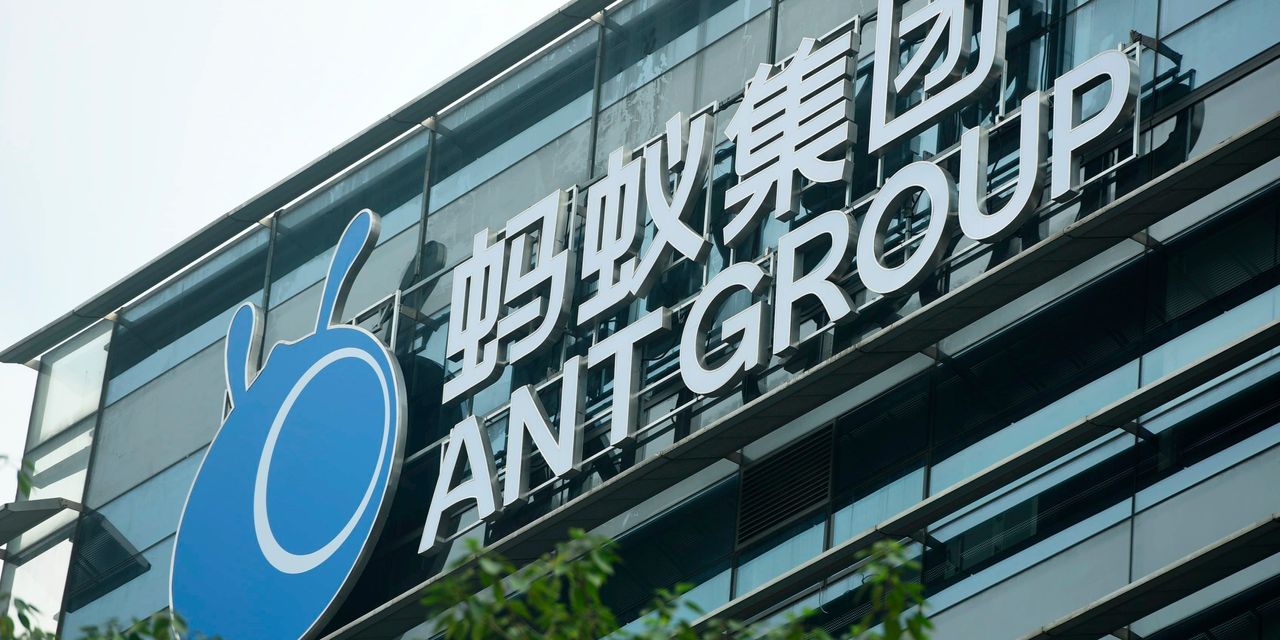

HONG KONG—China Cinda Asset Management Co., a state-owned financial institution, is pulling out of a planned large investment in the consumer-finance arm of Jack Ma’s Ant Group Co., dealing a setback to the fintech giant’s lending-business revamp.
Beijing-based Cinda, which is one of the country’s four big bad-debt managers, said Thursday that its board of directors made the decision to back out “after further prudent commercial consideration and negotiation” with the recently established Chongqing Ant Consumer Finance Co. It didn’t provide more details.
Ant, which is in the midst of a restructuring, set up Chongqing Ant in June to house its consumer-lending business and comply with financial regulations. Ant owns half of the Chongqing unit, with the rest held by six other companies. Nanyang Commercial Bank, a subsidiary of Cinda, is the second-largest shareholder, with a 15% stake.
In December, Chongqing Ant said it was expecting to receive a $3.5 billion capital boost, with the equivalent of $943 million of that coming from Cinda.
That proposed share sale would have nearly quadrupled the registered capital of the business to 30 billion yuan, the equivalent of $4.7 billion. It would give Chongqing Ant a bigger balance sheet to make loans to individuals, paving the way for the company to take on Ant Group’s existing consumer-lending portfolios. The planned additional investment by Cinda—a 20% stake—would have taken its total shareholding in Chongqing Ant to 24%.
Cinda’s Hong Kong-listed shares tumbled 10% in Friday trading after the company said it would no longer do the deal. The shares had jumped in late December.
Sunny Optical Technology (Group) Co. and Jiangsu Yuyue Medical Equipment & Supply Co., two other shareholders of Chongqing Ant that had also previously agreed to the capital raise, said on Friday that they would postpone their investments in light of Cinda’s decision.
Cinda’s withdrawal from the December agreement now means Ant’s consumer-finance arm will have to revise its capital-raising plans.
Chongqing Ant said Thursday that it fully respects Cinda’s decision. The company added that with regulators’ guidance it would hold discussions with investors, complete the proposal for increasing capital as soon as possible and rectify the consumer-finance business effectively.
It is a volatile time for China’s top four bad-debt managers. The institutions were set up in the late 1990s to take on nonperforming loans from state-owned banks. Over the past two decades, however, these “bad banks” expanded aggressively into other businesses through deals and acquisitions, raising regulatory concerns.
The unchecked growth ran its course with the downfall of Lai Xiaomin, the former chairman of China Huarong Asset Management Co., another of the four bad banks. In January 2021, Mr. Lai was sentenced to death after he was found guilty of bribery and embezzlement. He was executed a few weeks later. In November, months after reporting huge losses, Huarong said it would receive a $6.5 billion capital infusion from state-owned financial institutions.
Regulators have since tightened their grip on all four bad-debt managers. The companies have been told to return to their origins and focus on their core business of managing bad loans and distressed assets. The Central Commission for Discipline Inspection, the Communist Party’s antigraft watchdog showed last January that the four had consolidated or deregistered a total of 56 subsidiaries.
For Ant, the Chongqing unit will allow it to diversify its funding sources for loans made to millions of Chinese citizens and subject its popular consumer lending products to full regulatory oversight. Ant has rebranded some loan offerings on its popular Alipay app, making it clear to users whether they are borrowing from outside lenders or from the company itself. It is also fully integrating consumer credit data gathered from these operations into a government credit-reporting system.
Write to Jing Yang at Jing.Yang@wsj.com
Copyright ©2022 Dow Jones & Company, Inc. All Rights Reserved. 87990cbe856818d5eddac44c7b1cdeb8
24World Media does not take any responsibility of the information you see on this page. The content this page contains is from independent third-party content provider. If you have any concerns regarding the content, please free to write us here: contact@24worldmedia.com

Common Mistakes When Using Athletic Field Tarps

High-Performance Diesel Truck Upgrades You Should Consider

Warehouse Optimization Tips To Improve Performance

Fire Hazards in Daily Life: The Most Common Ignition Sources

Yellowstone’s Wolves: A Debate Over Their Role in the Park’s Ecosystem

Earth Day 2024: A Look at 3 Places Adapting Quickly to Fight Climate Change

Millions of Girls in Africa Will Miss HPV Shots After Merck Production Problem

This Lava Tube in Saudi Arabia Has Been a Human Refuge for 7,000 Years

Four Wild Ways to Save the Koala (That Just Might Work)

National Academy Asks Court to Strip Sackler Name From Endowment

Ways Industrial Copper Helps Energy Production

The Ins and Out of Industrial Conveyor Belts